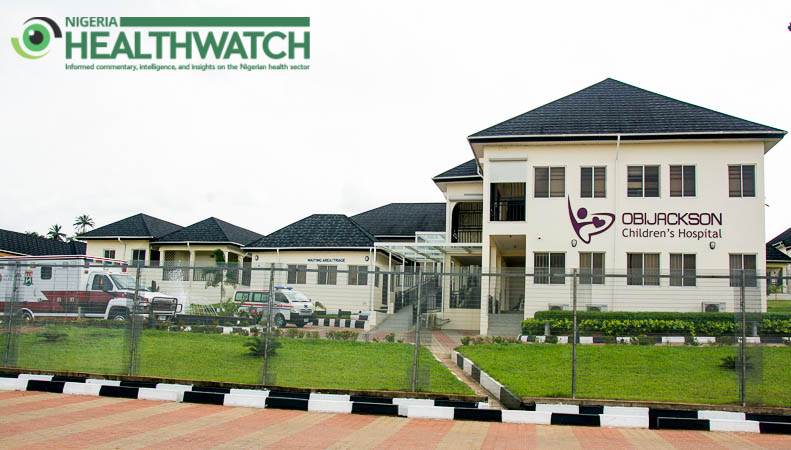Editor’s Note: The Obijackson Foundation in December 2019 threw a week-long Christmas festival, which included a Christmas party for 7,000 children in Anambra. EpiAFRIC team members, Chibuike Alagboso, Aloysius Ugwu and Thelma Thomas, who attended the event, write about how the Foundation’s has fared running the Children’s Hospital and the opportunities for potential partnerships to improve the health of women and children in South Eastern Nigeria.
The challenges faced by the health sector are daunting, and there is hardly a silver bullet to fix all the problems at once. It requires coordinated and consistent efforts from everyone who has the desire and ability to make a change.

The Nigerian constitution makes it clear that health is everyone’s business. It is listed on the concurrent legislative list. This means that both the federal, state and local governments have the responsibility to formulate policies and laws that guarantee quality health. The health ecosystem requires contributions from diverse stakeholders including health workers, policymakers, civil society organisations, development partners and philanthropists to achieve desired results. But are they doing as much as they should?
One example out of many
In 2016, we wrote about how the Obijackson Foundation, through a world class children and women hospital is contributing to improve healthcare. The hospital is in Okija, Anambra State and works to ensure that community members do not face financial hardship or lose their lives from preventable illnesses because of an inability to pay for healthcare.
Since then, the hospital has continued to deliver quality healthcare to patients from the community and beyond. They take pride in the successes recorded in their maternal and child services.

A lot of factors have contributed to this success, says the Chief Operating Officer of the hospital, Dr. Chinwe Muomalu. This includes having the right people in place with the right support and structures. “With all these inputs, we can actually be like developed countries with very low mortality rates during delivery,” Dr Muomalu said. She said with over 500 deliveries taken in the past two years, the hospital has not lost any mother or child, a feat that is commendable especially for a facility not located inside a main town.
As with most humanitarian establishments, Obijackson Children’s Hospital faces challenges that come from people who abuse the altruistic intentions of the founders. Once information got out that the founder, Dr. Ernest Obiejesi gave the approval for indigent persons to access free healthcare, people who ordinary could afford to pay also wanted to access free services. Dr Muomalu said this became a problem over the years as resources got lean due to the high inflow of people even from outside the community and state. They had to devise a means to check this and this involved introducing a social works department whose responsibility it became to authenticate the claims of the patients and their relatives.
But when life threatening situations arise, their primary objective is to save life first then verify if the patient’s bills can be waived.
Growing Stronger, open to partnerships
Good work has a way of causing a domino effect that creates opportunities for more work and impact. This realisation dawned on Dr Obiejesi and his team as they marked their annual Christmas activities in 2019. One of the days was dedicated to celebrating children from within the community and beyond. In 2019, they planned to host 7000 but ended up with almost triple that number. Yet, they all went home smiling and with hands filled like people returning from a successful treasure hunt.

Dr Obiejesi said the large turnout for the event reflects the need to expand the capacity of the children’s hospital to take care of more children. This will require committing more funds and efforts to improve their services.
But a lot more will be needed if the foundation and hospital will continue to improve lives. Professor Chiamaka Anieji, an Associate Professor of Neonatology at University of Texas Health Science Centre, Houston and a member of the Foundation’s board said looking ahead, the foundation will work to improve general public health and health systems in the environs. This will be achieved by making the hospital a centre of excellence and learning institution. Cultivating partnerships with other philanthropic individuals, organisations and government will also go a long way in ensuring sustainability of the excellent work the Children’s Hospital is doing.
This provides a unique opportunity for the foundation to structure their work in a way that the founder’s visions will outlive them, creating lasting legacies and impact beyond what they even imagined. There are numerous strategies to achieve this but like Professor Anieji pointed out, the big vision doesn’t have to happen at once. It begins with calculated yet intentional little steps.


